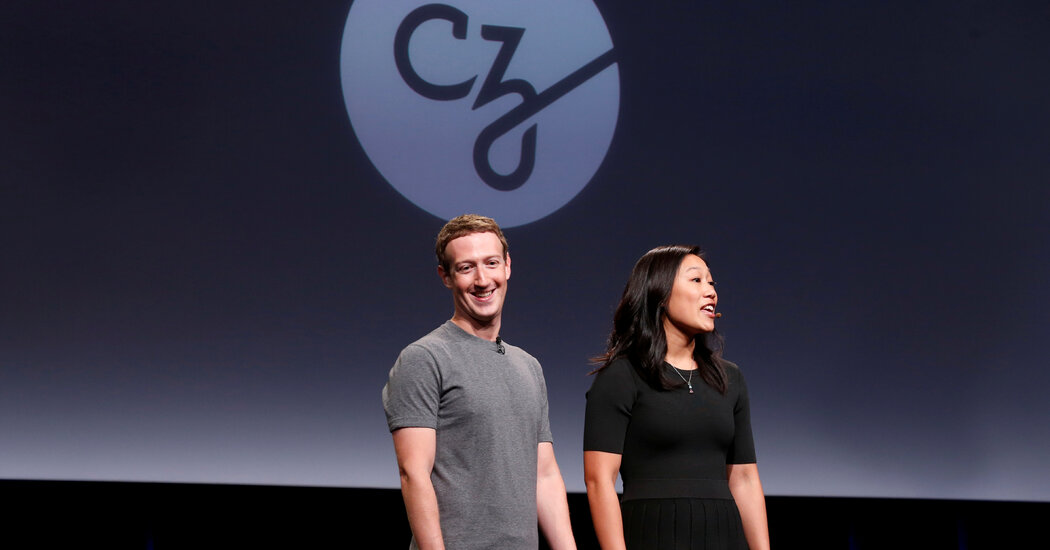The Chan Zuckerberg Initiative, the philanthropy run by Meta’s chief executive, Mark Zuckerberg, and his wife, Dr. Priscilla Chan, once pledged to fix American education, transform public policy and “cure all disease.” But over the years, it narrowed its focus to science.
On Thursday, the organization announced its first major restructuring to become even more of a science-focused philanthropy.
The Chan Zuckerberg Initiative said it would now concentrate on artificial intelligence and scientific research, led by a network of research centers called Biohub. It also acquired the team of an A.I. start-up, Evolutionary Scale, and named Alex Rives, the company’s chief scientist, its new head of science. It declined to disclose how much it had paid for the team.
In an interview on Wednesday at an event in Biohub’s office in Redwood City, Calif., Mr. Zuckerberg said that he and Dr. Chan wanted to “focus on something that wasn’t going to be undone every few years.” The Chan Zuckerberg Initiative’s emphasis on science and A.I. had the potential for lasting, generational impact, he said.
The restructuring is significant for one of the world’s most visible philanthropies. Founded in 2015, the Chan Zuckerberg Initiative had wide-ranging ambitions and committed over $7 billion in grants in the last decade. Mr. Zuckerberg and Dr. Chan pledged to give away almost all of their wealth through the organization, which would amount to $256 billion.
But Mr. Zuckerberg and Dr. Chan’s relationship with politics has changed over time, and the organization has stepped away from social justice and political efforts.
After President Trump’s inauguration in January, the Chan Zuckerberg Initiative ended diversity-based recruiting and laid off or reassigned employees who ran its diversity initiatives. In April, a school for low-income students that Dr. Chan had founded announced that it was closing after losing its funding. In May, the organization ended nearly all of its giving to local housing nonprofits.
Its focus on science and A.I. mirrors changes that Mr. Zuckerberg has made at Meta. The tech giant, which owns Facebook, Instagram and WhatsApp, has gone all in on A.I. It has said it is spending at least $70 billion this year, largely to stay competitive in the A.I. race.
At the event at Biohub’s office on Wednesday, Mr. Zuckerberg and Dr. Chan pledged to increase the organization’s computing power from data centers tenfold by 2028 to help with A.I.-powered biological research. Specific projects include a virtual cell mapping platform, a large language model that can perform biological reasoning and A.I. that analyzes genetic sequences to detect disease.
Biohub’s scientists aim to use A.I. to conduct virtual experiments at a larger scale and faster rate than currently possible in laboratory testing, the organization said.
Steve Quake, the Chan Zuckerberg Institute’s previous head of science, stepped down in September.
Dr. Chan, 40, a pediatrician, has said the organization sees its best return on investment from science. The philanthropy has reduced the size of grants it has given to other areas like education and housing but said it would not end that giving entirely.
Eli Tan covers the technology industry for The Times from San Francisco.
Mike Isaac is The Times’s Silicon Valley correspondent, based in San Francisco. He covers the world’s most consequential tech companies, and how they shape culture both online and offline.
Theodore Schleifer is a Times reporter covering billionaires and their impact on the world.
The post Mark Zuckerberg and Priscilla Chan Restructure Their Philanthropy appeared first on New York Times.




